#ccp
Text

#art#abstractart#carol christian poell#ccp#artist#danielgianfranceschi#avantgarde#abstract#collaboration#paris
1K notes
·
View notes
Text

Edward H. Weston ~ Mary [kitten on clock], 1945 | src CCP~ University of Arizona
view more on wordPress

Edward H. Weston ~ Marco Polo [cat on stool], 1944 | src CCP~ Univ. of Arizona
#cat portrait#caturday#edward weston#edward h. weston#chat#cat#Katze#gato#gatto#animals#kitten#pets#portrait#Haustiere#marco polo#mary#weston cats#CCP#edward henry weston
180 notes
·
View notes
Photo

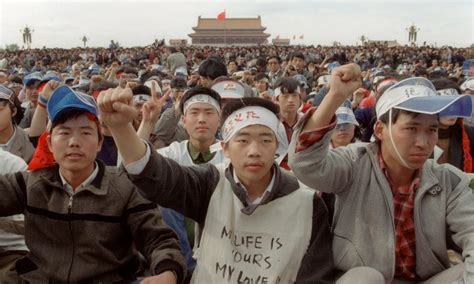


Remember June 4 Tienanmen Square
455 notes
·
View notes
Text


Carol Christian Poell: Zipper Jacket S/S 2000
310 notes
·
View notes
Text
and remember! Colonial boarding schools still exist today and nobody talks about them!
#Free Tibet#colonial boarding schools#colonial residential schools#CCP#fuck the ccp#tibet#genocide#Colonialism#colonization#settler colonialism#Free tibet#indigenous#tw residential schools#tw colonialism
157 notes
·
View notes
Text

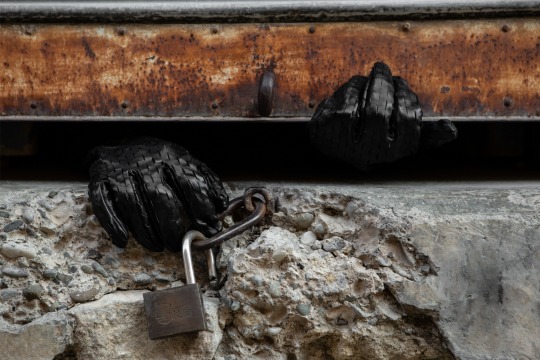

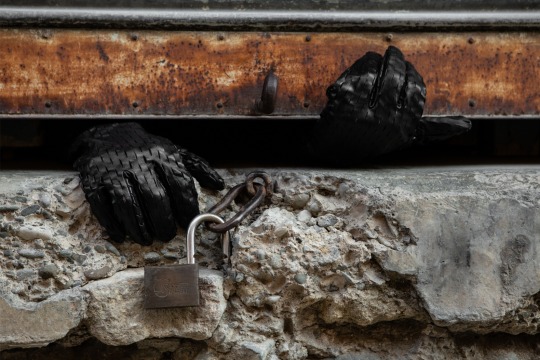

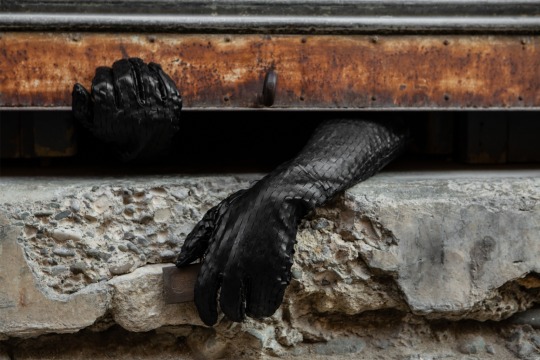

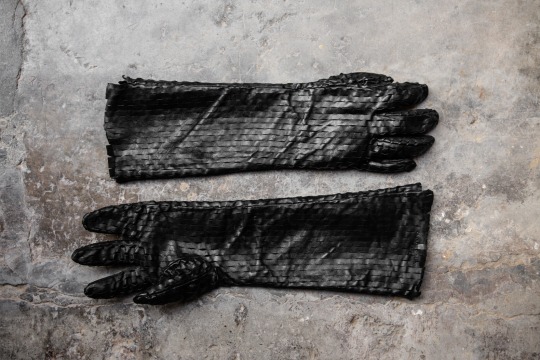


CAROL CHRISTIAN POELL "IN BETWEEN - O. D. 9 FINGER SIFTER ARMS"
Photography: Antonis Minas for the Office gallery
#circular latter#CAROL CHRISTIAN POELL#CCP#the ccp office#the office gallery#IN BETWEEN - O. D. 9 FINGER SIFTER ARMS
68 notes
·
View notes
Text

Not Barbie siding with CCP territorial claims 😭
#barbie#barbie movie#greta gerwig#margot robbie#ken#ryan gosling#china#ccp#movies#vietnam#south china sea
89 notes
·
View notes
Text

'Radicals' exhibition by Carol Christian Poell.
Photography by Graça Fisher.
follow on Instagram for more
92 notes
·
View notes
Text
you know, i am feral for futuristic sci-fi media wherein there's always this part of society that calls itself eden or garden of eden that presents itself as this utopia (but only a select part of this society is allowed in or really, it's just a fancy prison) and how at some point in the story, it is burned to the ground and usually by those who built it in the first place
i mean, there's more to it than just the gratifying feeling of burning and destroying a false paradise but also the absolute heresy in calling it eden only for it to be the complete opposite of what it should/used to represent
(there's really more to it that makes me go ape shit about this trope in media but unfortunately i currently cannot slap the words together nor can i make them coherent, so have this for now)
(also, i'm looking at you 残次品 and 小蘑菇 👁️👁️)
#I LOVE THIS TROPE SO MUCH IM NOT EVEN KIDDING#I EAT THAT SHIT UP EVERY TIME#*CHEF'S KISS*#残次品#ccp#can ci pin#the defective#小蘑菇#xiao mo gu#little mushroom
21 notes
·
View notes
Text






Museo MAXXI, Roma, Zaha Hadid
#art#abstractart#carol christian poell#ccp#artist#danielgianfranceschi#avantgarde#abstract#collaboration#paris#rome#zaha hadid#brutalism#minimalism#minimal#concrete#rationalism#arte contemporanea#contemporary art#abstract art#architecture#new architecture
411 notes
·
View notes
Text

Edward H. Weston ~ Franky (?) [tabby cat lying in basket], 1945 | src CCP~ Univ. of Arizona
view more on wordPress

Edward H. Weston ~ Franky [tabby cat lying on rough dark surface] 1945 | src CCP~ Univ. of Arizona
#edward weston#cat#franky#chat#Katze#cat portrait#gatto#gato#Caturday#1940s#edward h. weston#weston cats#CCP#edward henry weston#pets#Haustiere#fauna#animals
116 notes
·
View notes
Text

Carol Christian Poell, S/S 2001.
139 notes
·
View notes
Note
you switch between arguing that tulpamancy has nothing to do with tibetan buddhism and arguing that it's actually cultural exchange which are contradictory and also the second is just regular cultural appropriation but also, what exchange? i've repeatedly seen people in the tulpamancy community assert that southeast asian buddhists can't be accurate sources on what tibetan buddhists think(as opposed to non-buddhist northern americans, who are somehow more accurate sources) because tibet is in china. it's in southeast china which directly borders southeast asia and has centuries of cultural exchange with southeast asia because they are neighbors and at many points in history did not have borders between them..... and to that end i have to ask, what cultural exchange? if you can't be bothered to do any deeper research than the first page of the google panel and every time a buddhist tries to argue with you it's time to whitesplain wikipedia to them, forgive me for doubting that you even have surface level knowledge of tibet let alone any actual connections to any region with a prominent buddhist population and history. like the accusations of orientalism are because your engagement with the topic is fundamentally shallow and all you are doing is taking. exchange is when you EXCHANGE. if a buddhist invites you to celebrate vesak with them, that's cultural exchange because you're participating in their religion with them and sharing your time and enthusiasm. if your tibetan friend gifts you a chuba, that's cultural exchange because you're friends sharing culture with each other. that's what distinguishes exchange from appropriation, that the people whose culture you're being inspired by are relevant to you and that you have made an attempt to understand them beyond the ways their culture can be useful to you, which i have seen mountains of evidence is not the case in the tulpamancy community. and while i do think this community should consider talking to and befriending modern practicing buddhists beyond one redditor who claimed to be a tibetan buddhist once, perhaps even with the respect to consider that asians might know more about asia than you do( and not even to force them to litigate whether or not sna tshogs sprul pa can be fire emblem characters i just think yall should diversify your social circle a little), i should also say that on this topic that i actually don't care if you would rather just switch to saying that tulpamancy has nothing to do with tibetan buddhism to avoid learning about tibetans/buddhists/tibetan buddhists. firstly thats just another excuse for your shallow engagement with those cultures because that's still the origin. that's still where the name is from. and it's still cultural appropriation to ignore that- actually it's the first examples of cultural appropriation. the term was invented to describe white people taking aspects of nonwhite cultures and pretending that they invented them and doing their best to separate themselves from any responsibility to treat the people whose culture they're taking with any respect. so if you want to use the term tulpa, and especially if you want to insist that it's not cultural appropriation, your community needs to do the work to not just be shallowly appropriating. instead of only bringing up religious tulpas in the context of christianity, look into the actual nirmāṇakāya. talk to some of the buddhists you're currently focusing on epicly owning the second they don't 100% agree with you. also tenzin gyatso was a slaveowner pre-exile so you should consider not using him as an authoritative source. now, of course, this runs the risk that you might run into people who disagree with your view of tulpamancy or even outright reject it as a thing you should do(as a lot of buddhists on here have), which is again the point, to care about people beyond how they can serve to reinforce the thing you already wanted to do. if the tulpamancy community became known for their strong bond with/respect for practicing buddhists this would be a non-issue
You... don't think the Dalai Lama... should be used as an authoritative source... on Tibetan Buddhism?
Wow! That's certainly a take!
Sorry, I'm going to circle around back to this in a bit.
In any case, the arguments are not contradicting. When we discuss Western tulpas, there are two distinct types of tulpas that come up.
The first is the Alexandra David-Neel tulpa, which I'll call the ADL tulpa for short. The ADL tulpa was first brought to the West by Alexandra David-Neel, a French Buddhist and the first European woman to be given an audience with the Dalai Lama.
This version of the tulpa was recorded by Alexandra David-Neel who relied on the translation services of Lama Kazi Dawa Samdup, who himself had an interest in esotericism and may have influenced an interpretation of the tulpa that incorporated concepts from Western Theosophy.
The ADL tulpa was a creation of a cultural exchange. This was the type of tulpa that permeated Western culture for nearly a century prior to modern tulpamancy which came about in 2009.
The tulpa of tulpamancy borrows its concepts from the ADL tulpa rather than any practices the ADL tulpa was based upon.
It is so distant from the sprulpa and tulku as to be unrelated in anything but a vague etymology. Even the word "tulpa" isn't one typically used by actual Tibetan Buddhist practitioners. Basically, nothing in tulpamancy from the concept to the name is directly from Tibetan Buddhism.
With that explanation, back to the Dalai Lama.
This actually highlights one of the key reasons why I'm hesitant to just believe any story by anyone who lives in or has come from the general area.
Tibet and its history is incredibly politically charged with bias and misinformation on both sides.
It's true that the structure of Tibet resembled that of European Serfdoms, which is naturally unacceptable and indefensible. But I will point out that many scholars would draw a distinction between this system and what we think of when we discuss slavery.
But accusations of the Dalai Lama being a slave owner persist, being pushed heavily by the CCP as a justification for their invasion of Tibet and their dismantling of the Tibetan religion and culture. Conquerors always love to portray themselves as liberators, as we can see happening right now with Russia trying to justify their invasion of Ukraine by claiming to be trying to "denazify" it, and pushing a narrative that the people of Ukraine are supporting Russia's invasion.
I also have to point out that the Dalai Lama took power at 15, and China bullied Tibet into signing the country's sovereignty over to them that same year. He was a kid managing a country thrown into chaos. And he ultimately was forced to flee his home at 23.
I find it unrealistic to expect a kid with no real first-hand leadership experience while surrounded by aristocrats who don't want to lose their power to just be able to instantly change the entire governing system while dealing with an outside force trying to take its rights.
All of this is huge red herring though.
The Dalai Lama's past doesn't invalidate his authority as a source on Tibetan Buddhism, as the most prominent member of the Gelug school of Tibetan Buddhism and as one of the most respected Buddhist figures around the world.
Who else would you prefer us listen to? The puppet Panchen Lama chosen by the secular CCP invaders who have claimed exclusive right to choose the reincarnations of Lamas over the will and the traditions of Tibetans?
But who really knows? Perhaps I'm overstating the importance of the Dalai Lama in modern Tibet. I would love to see survey results from modern Tibetans. Perhaps the CCP propaganda is true and the Dalai Lama is actually hated by modern Tibetans.
But then, I honestly wouldn't trust the validity of such statistics anyway. After all, who would admit to supporting the Dalai Lama in a country where that can get you arrested or just disappeared without explanation? "Yes, I do support the Dalai Lama, now take me away for splitism."
The complete oppression of free thought and expression in Tibet and massive propaganda put out by the CCP has made it impossible to trust information coming out of the region in relation to the Dalai Lama. Especially from non-Tibetans who are going to be drawing a lot of their impressions of Tibet and its history from the CCP's state-run media.
When the propaganda campaign is that strong, proximity creates more opportunity to be informed, yes. But it also creates opportunity to be disinformed. Again, look to how many Russians legitimately believe they're fighting to denazify Ukraine at this moment. Despite being neighbors, would you consider the Russians well-informed on the opinions of Ukrainians or qualified to speak for them?
Can you understand why I'm hesitant to believe non-Tibetan Buddhists speaking for Tibetan Buddhists on this actually have the best interests of Tibet in mind?
And can you understand yet why I find the concept of "we're the same race as Tibetans and live nearby so we get to decide what's offensive to their culture" problematic? After all, silencing and speaking for Tibetans and Tibetan Buddhists is what the CCP has been doing for 70 years.
So moving back to the topic of tulpamancy: The Dalai Lama has said other religions can benefit from Tibetan Buddhist meditations and has encouraged that. If the specific practices tulpamancy was based on, and their terminology, were super closed and sacred and off-limits to outsiders, then that should be decided by other Tibetan Buddhists. (Ideally, actual spiritual leaders and teachers.) It's not up to any random people who just happen to reside in the same region to decide when Tibetan culture is being appropriated or in what ways they're allowed to share their culture.
Especially not ones like you who come at me parroting CCP propaganda and arguing that I should trust non-Tibetan Buddhists in the same region over the Dalai Lama on the matter of Tibetan Buddhism.
#syscourse#politics#international politics#china#tibet#dalai lama#tibetan buddhism#tulpa#tulpamancy#tulpas#ccp#anti ccp#endogenic#pro endo#pro endogenic#plural#systems#system#plurality#multiplicity
57 notes
·
View notes
Text




Ccp pasarela ucsc
34 notes
·
View notes
Text

@polo__zheng
48 notes
·
View notes
Text






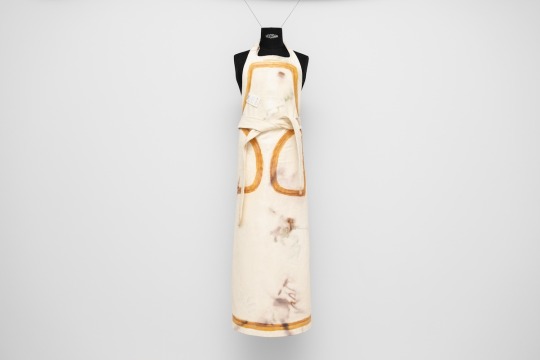




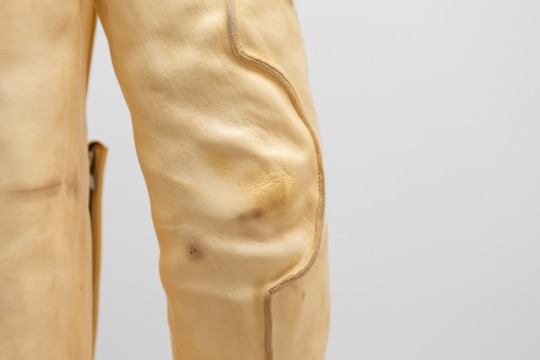
CAROL CHRISTIAN POELL “MOVING PICTURES PRE/VIEW I. NEW IN BETWEEN”
Photography: Antonis Minas for the Office gallery
#circular latter#CAROL CHRISTIAN POELL#CCP#the ccp office#the office gallery#MOVING PICTURES PRE/VIEW I. NEW IN BETWEEN
64 notes
·
View notes